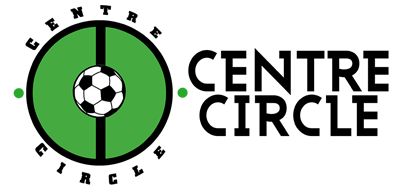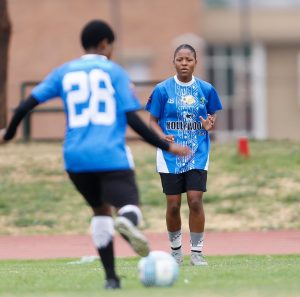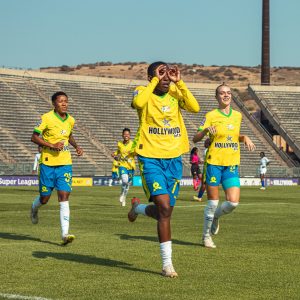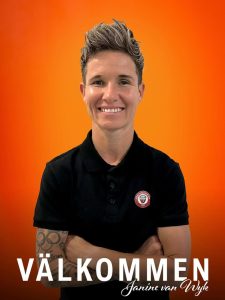Former Banyana Banyana and Bafana Bafana Performance Analyst, Shilene Booysen says football is in her blood and will jump on to the next project after taking a short break at home in South Africa.
Although she has a few offers from both clubs and countries, she has opted to join FIFA as a Technical Expert in the coach development arena – a subject very close to her heart.

“Football is in my blood, it’s not just what I do, it’s who I am. I have had a few offers from clubs and countries, but I am not chasing a name, I am chasing a project that matters – somewhere where I continue to help grow the game, elevate players and bring out the best in those around me,” said Booysen from Egypt in an exclusive interview with CentreCircle.online.
“The disappointing part is that it was my last match. I wanted to win the cup for that reason to end a journey in Egypt having won something. But two finals in two seasons and second and third positions is as big a victory as any.”
She broke the news of her departure to her team after their 1-0 loss to Al Ahly in the final of the Egyptian Women’s Cup on Sunday (25 May 2025).
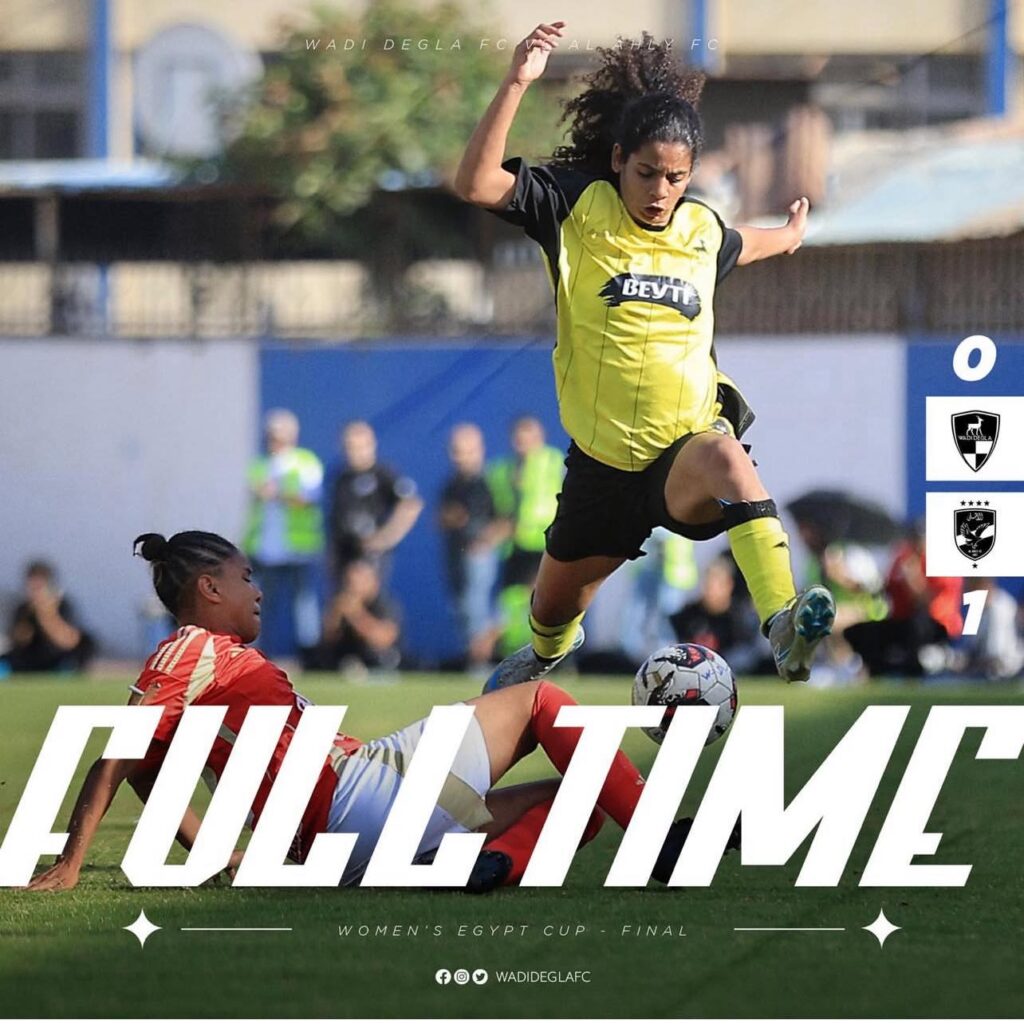
“Losing 1-0 in extra time was hard. We can look back and see what we could have done better. But I will look back and see how far we have come as a team. We stretched ourselves, stepped out of our comfort zone and continued to fight for 120+ minutes. I have worked with some amazing players, amazing staff and I will never forget the experience. We played for Wadi Degla FC, and that meant something,” Booysen said on a Facebook post.
She further penned a farewell message to her Egyptian employers of the last two years.
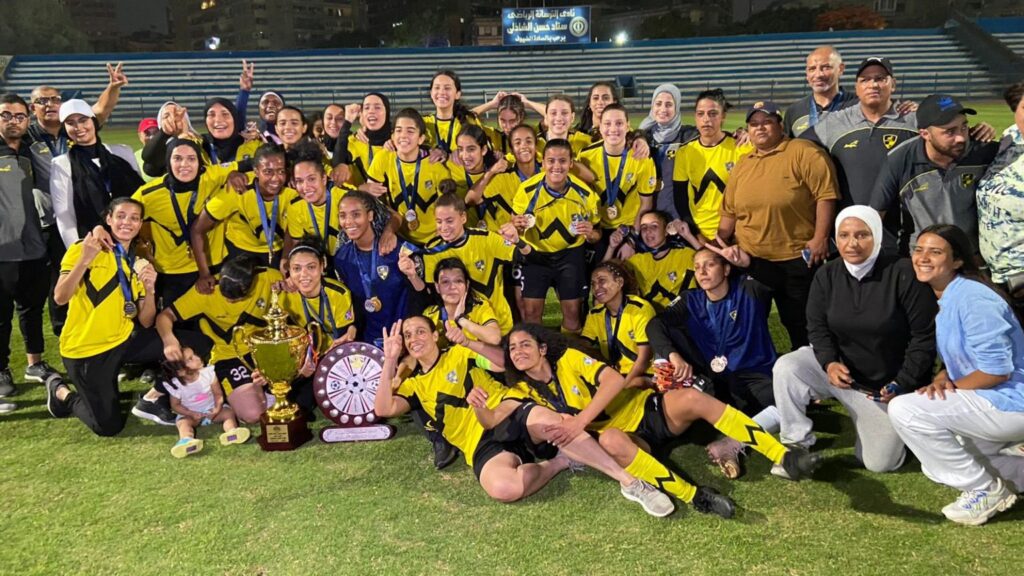
“Grateful. Proud. Humbled. After two unforgettable years coaching at Wadi Degla FC Women’s team, it’s time to say thank you. Coaching here has been more than just a job — it’s been a journey of growth, learning, and purpose. I’ve had the privilege of working with incredible staff, amazing players, and most importantly, helping promote and guide some truly talented young players into the next stages of their careers. Watching them grow has been one of the most rewarding parts of the experience,” said Booysen in a Facebook post.
“To the players: thank you for your trust, your work ethic, and your belief. To the club: thank you for the opportunity and support every step of the way. I’ll always carry this chapter with pride, and I’m excited for what lies ahead — for myself and for the future stars of this club.”

The South African had joined the North Africans after a two-year stint with the South Sudan Senior Women’s National team – a challenge many applauded her for – where she literally had to start afresh and build a team.
So much was her impact at Wadi Degla that the club’s farewell message was an indication of how valued she was.
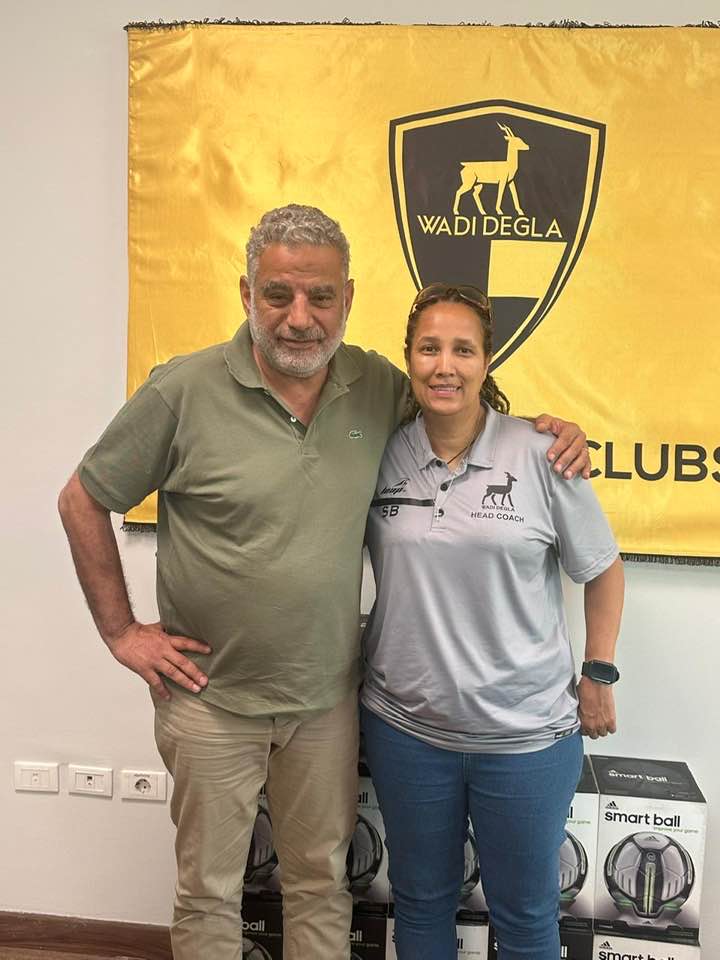
“We would like to thank Captain Shylene Booysen for all the effort and dedication she has given to the Ladies First Team over the past period. We wish her all the best and success for her future. We will miss you captain Shilene. Thank you!”

Prior to her time in South Sudan, she was the Performance Analyst and assistant coach of American side Houston Dash, reporting to former Banyana Banyana Head Coach Vera Pauw.
The former goalkeeper has a well-decorated CV – she was part of the Banyana squad that won the silver at the 2018 CAF Women’s Africa Cup of Nations in Ghana. Her name is also in the history books after helping South Africa progress into the Round of 16 – for the first time ever – at the 2023 FIFA Women’s World Cup in Australia and New Zealand. At the time, she was the Technical Advisor alongside head coach Desiree Ellis and assistant coach Thinasonke Mbuli.
In a wide-ranging interview, CentreCircle.online caught up with her from her base in Egypt where she was packing her bags in preparation to fly out of the North African country soon.
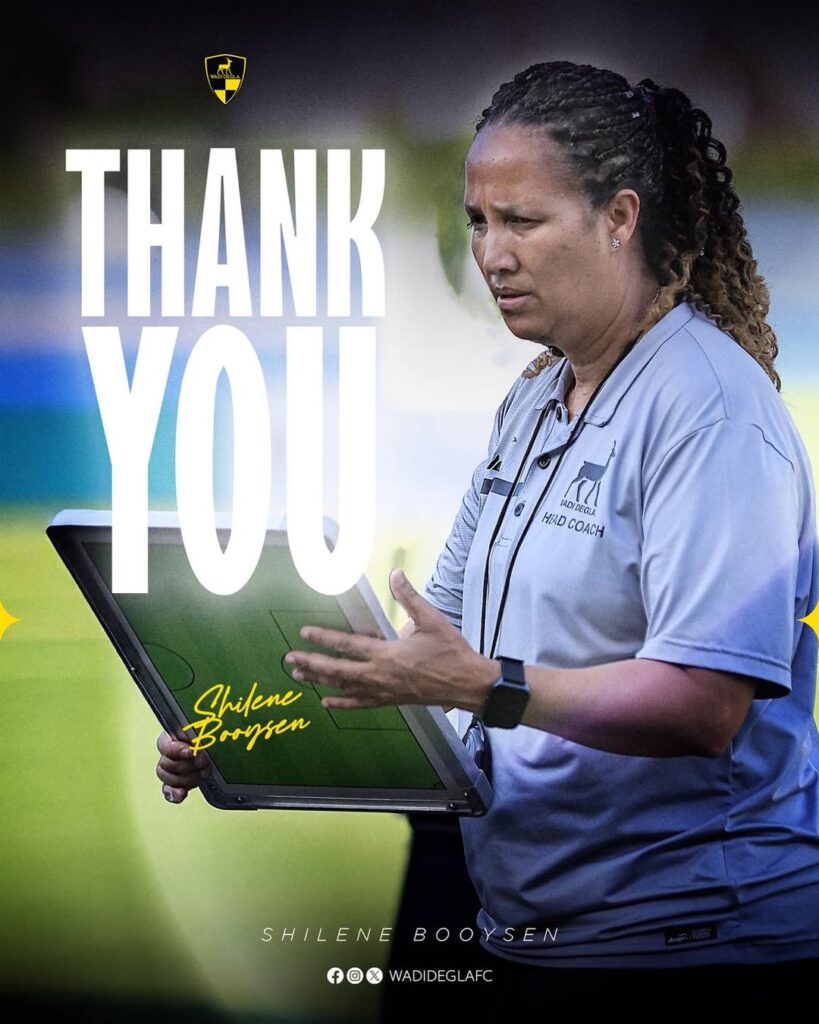
How difficult was the decision to leave Wadi Degla?
It’s definitely not an easy decision. Over the past two years, I’ve poured a lot of myself into this club — emotionally, professionally, and personally. I’ve built strong relationships here, and I’ve grown a lot as a person and as a coach. Leaving something you’ve been so invested in is never simple or easy. But sometimes, for growth or new challenges, you have to make tough choices. I’ll always be grateful for my time here and the people who supported me.
Two years is a rather long time in football, how would you describe your time in Egypt?
Coaching in a different country, especially in a culture that was new to me, has been one of the most rewarding experiences of my career. It challenged me to grow not just as a coach, but as a person. I’ve learned to adapt, to listen more, and to understand the game through a different lens. Working in the women’s game here has been particularly special — the passion, resilience, and drive of the players have been incredibly inspiring. I’m proud of what we’ve achieved together, and I leave with a deep sense of gratitude for the opportunity to contribute to something meaningful in a place that welcomed me so warmly.
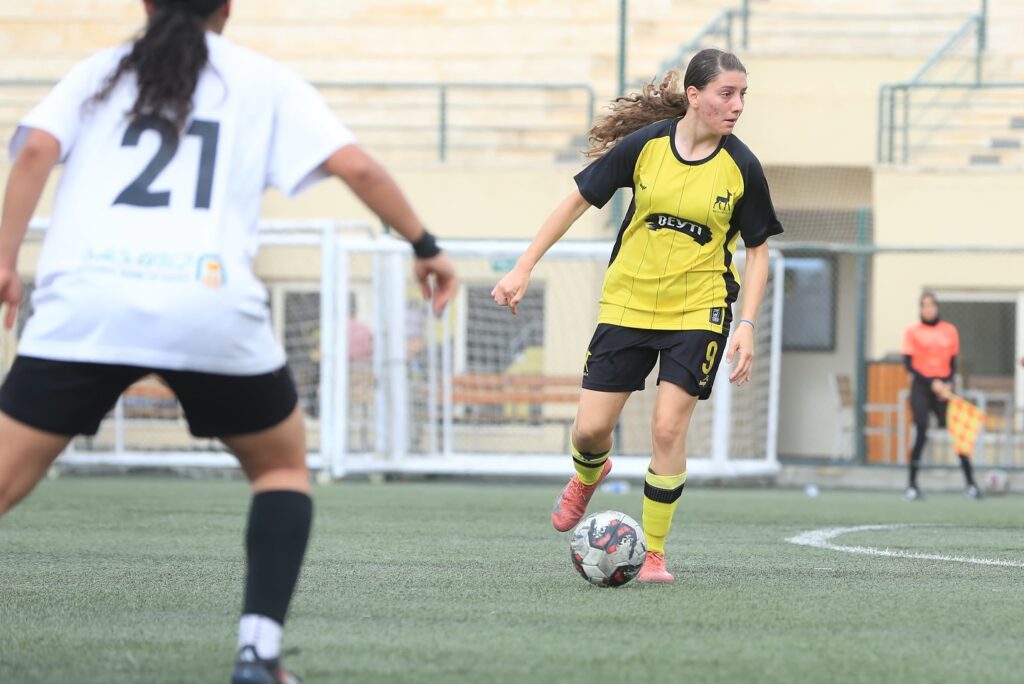
What was your greatest moment at Wadi Degla?
It’s hard to pick just one moment, because the journey itself has been incredibly meaningful. Finishing 2nd and 3rd in the league and reaching two cup finals were proud achievements, especially considering the project was as much about rebuilding a team for the future as it was about competing in the present. But if I had to choose the most rewarding part, it would be seeing the development of our young players. Watching them grow in confidence, step into bigger roles, and realize their potential — that’s the kind of impact that lasts longer than any trophy. To help lay a foundation for the future of women’s football at Wadi Degla, and to do it with such a committed group of players and staff, has truly been the highlight.
Do you think you made any difference in the team? What would you say achieved?
I think the biggest difference I’ve made is helping to shape a team culture that values resilience, character, and long-term growth — not just results. When I arrived, the team was in a rebuilding phase, and we knew it wouldn’t be easy. But I wanted the players to understand that success isn’t only measured in trophies. It’s about how we respond to setbacks, how we support each other, and how we carry ourselves — on and off the pitch. We put a real focus on mental and emotional resilience. Losses are part of the game, but how you learn from them, how you come back stronger — that’s what defines you. I’m proud to say we didn’t just build a competitive team; we built a group of strong, self-aware, and grounded individuals. For me, developing good humans alongside good footballers is the real win.

You are the first South African to coach in the Egyptian Women’s Premier League – how much has that put this country on the map?
Being the first South African to coach in Egypt’s Women’s Premier League is more than a personal achievement; it’s a testament to the growing recognition of South African coaching talent on the continental stage. This milestone highlights the increasing collaboration and exchange of expertise between African nations, which is vital for the advancement of women’s football across the continent.
Egypt, with its rich footballing history, offers a unique environment to showcase the depth and quality of South African coaching. By establishing a presence here, we not only enhance the standard of play but also inspire a new generation of players and coaches in both countries. This role underscores the importance of cross-cultural exchange in elevating the women’s game and fostering stronger footballing communities throughout Africa.
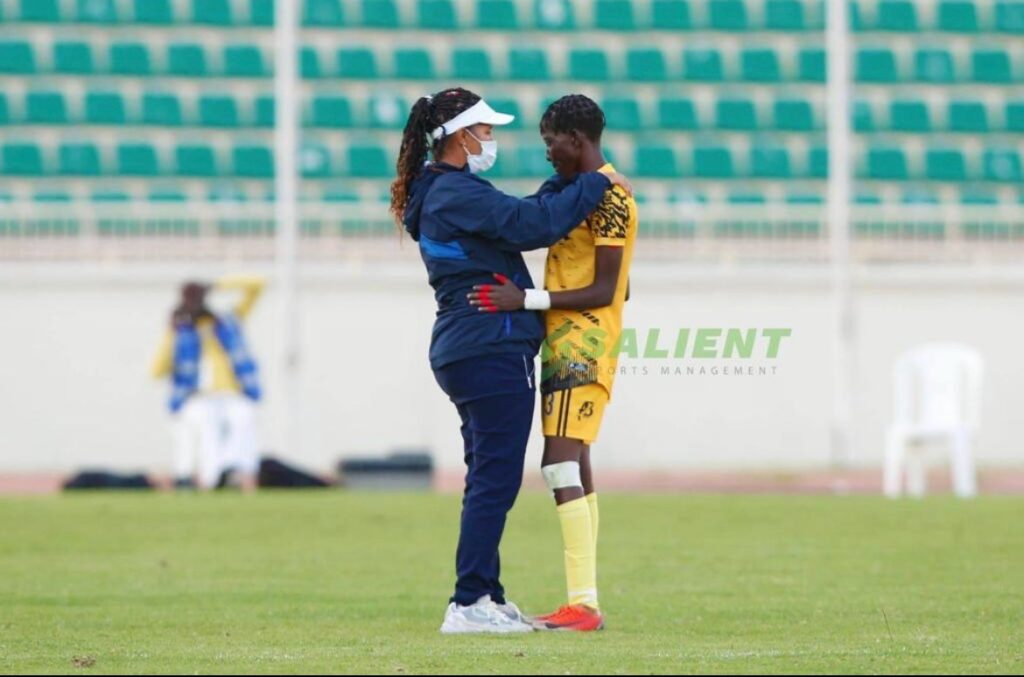
Moving from South Sudan to Egypt – two very different countries: what lessons did you learn both as a person/individual and as a coach?
Moving from South Sudan to Egypt was a powerful transition — both professionally and personally. These are two very different countries, each with their own unique challenges and incredible strengths. From South Sudan, I learned how to lead in environments where resources were limited but the passion for the game was limitless. It taught me the importance of adaptability, patience, and truly understanding the human side of coaching — building trust, creating hope, and leading with empathy.
In Egypt, I stepped into a more structured football culture with a longer history in the women’s game, but it came with different pressures — expectations, competition, and navigating a new language and culture. As a coach, I had to refine my methods, raise the tactical level, and manage a team with diverse personalities and ambitions. As a person, I learned resilience in a different way — how to maintain your values while still evolving in a fast-paced, demanding environment.
Ultimately, both experiences have shaped me into a more complete coach and a more grounded human being. The biggest lesson? That people, no matter where you are, respond to genuine care, clear purpose, and belief — and that football can be a powerful connector across even the widest of cultural divides.
One of the things you cherish is being home – how important is that for one to recharge their batteries before taking on another assignment?
Being home is incredibly important to me. It’s where I reconnect with my roots, my family, and the things that keep me grounded. Coaching can be all-consuming — emotionally, mentally, and physically — so having time at home allows me to step back, reflect, and recharge. It’s not just rest; it’s restoration.
When you’re constantly giving to players, staff, and a project, you have to make sure your own cup is full too. Being home helps me do that — it reminds me why I started this journey in the first place, and gives me the clarity and energy I need to be fully present for the next challenge. So yes, home is more than just a place — it’s part of my process, and essential to showing up as my best self when the next opportunity comes. I am absolutely looking forward to spending time with my son. Building a new project with him as he has grown so much in the last two years and also his own goals and visions have changed. Would like to tap into that and make sure that he knows how much he is valued and help him to find his purpose in life.
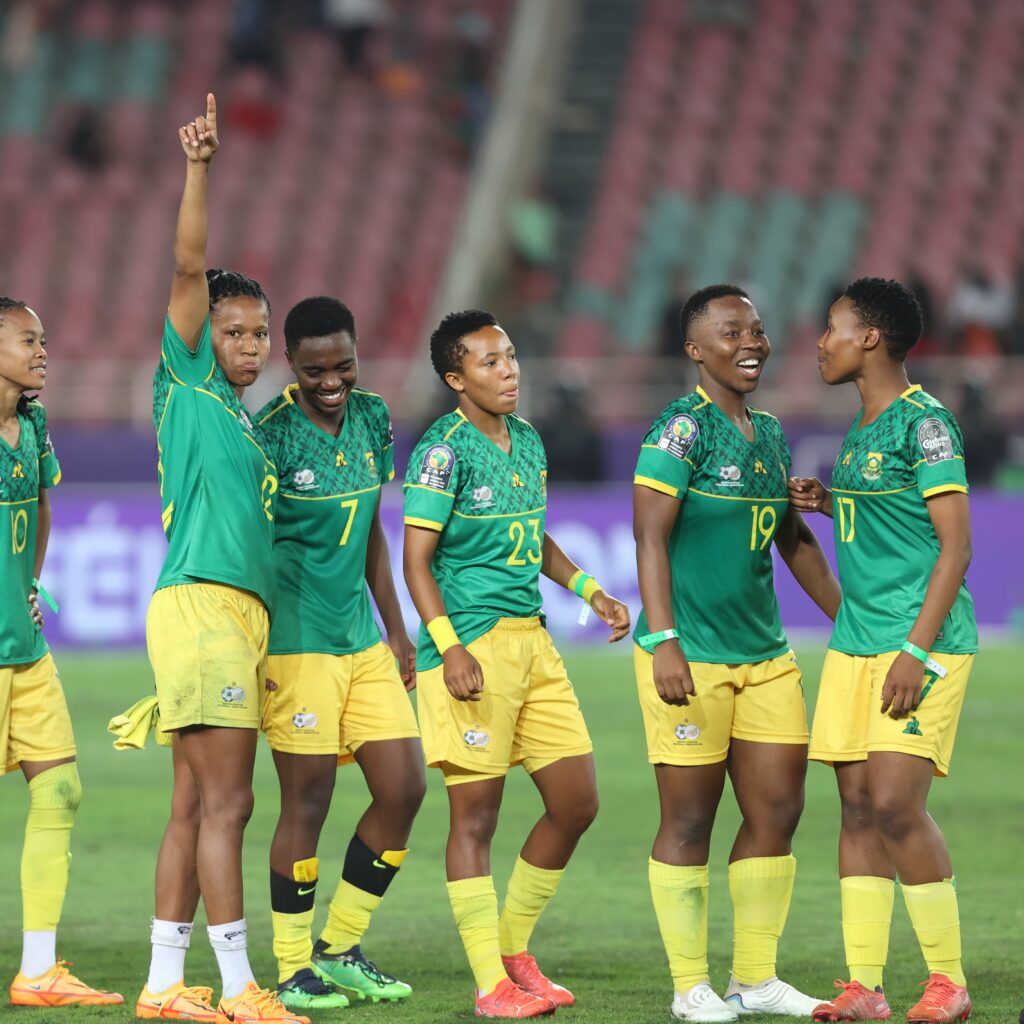
Banyana Banyana are heading to the WAFCON as the defending champions – how much pressure are they under, and how do you think they will fare?
Banyana Banyana, as the defending champions of the Women’s Africa Cup of Nations (WAFCON), undoubtedly carry the weight of heightened expectations. However, this pressure is not unfamiliar to them.Their resilience has been evident in previous tournaments, including the 2023 FIFA Women’s World Cup, where they overcame off-field challenges to perform commendably. Coach Desiree Ellis has emphasized the importance of preparation, acknowledging the need for regular camps and quality opposition to ensure the team’s readiness. The recent friendly matches against teams like Jamaica serve as vital opportunities to assess and refine strategies ahead of the tournament. With a blend of experienced players and emerging talents, Banyana Banyana possesses the depth and skill to defend their title. Their group stage opponents—Ghana, Mali, and Tanzania—present formidable challenges, but the team’s collective spirit and determination will be key factors in their pursuit of success. It will of course not be easy, but they have done it before and am confident they will give a good account of themselves.

We saw not so long ago the retirement from Banyana Banyana three stalwarts of the women’s game – Janine van Wyk, Noko Matlou and Nompumelelo Nyandeni – players you worked with a lot. The end of an era, wouldn’t you say?
Yes, it truly is the end of an era — not just in terms of experience leaving the field, but in the sense of saying goodbye to players who fundamentally shaped what Banyana Banyana represents today. Janine, Noko, and Mpumi aren’t just stalwarts; they’re pioneers, leaders, and symbols of perseverance who carried the national team through some of its most transformative years. I was fortunate to work closely with them, and what stands out is not just their footballing quality, but their character — their discipline, leadership, and deep sense of responsibility to the badge. They inspired generations of young girls to believe that a future in football was possible. While it’s sad to see them retire, they leave behind a powerful legacy. And I believe they’ll continue to impact the game — whether as coaches, mentors, or ambassadors. This is their era ending on the international pitch, but their influence will be felt for a long time to come.

From an African perspective, where are we in women’s football in catching to the rest of the world – have we made any gains?
From an African perspective, women’s football has definitely made significant gains over the past decade, but we still have a journey ahead to fully catch up with the top tiers globally. The increased visibility of tournaments like the Women’s Africa Cup of Nations and the CAF women’s champions league, more investment in youth development (schools championships), and greater media coverage have all helped raise the profile of the game on the continent. We’ve seen incredible talent emerge—from players excelling in top leagues abroad to national teams competing fiercely on the international stage. Banyana Banyana’s, Super Falcons and Morocco and Zambia’s performances at the World Cup, for example, show that African teams can compete at the highest level. However, challenges remain: infrastructure, funding, and professional opportunities for women’s football still lag behind many other parts of the world. But the passion and potential here are undeniable. The key now is sustained investment and creating pathways that allow our players and coaches to develop fully. So yes, we’ve made important strides, but this is just the beginning of a much bigger journey to close the gap. The future looks bright if we keep pushing forward with the same dedication and belief.
Lastly, based on the above, what perhaps needs to be done for the women’s game on the continent to be on par or at least as close as possible to their counterparts abroad?
Professionalising women’s football in Africa is absolutely critical if we want to close the gap with Europe and the Americas. Professionalisation isn’t just about contracts and salaries — it’s about creating an ecosystem where players have access to quality training facilities, proper medical care, nutrition, and competitive leagues that challenge and develop their abilities.
When players are supported professionally, they can focus fully on their development without having to juggle multiple jobs or face financial insecurity. This leads to higher standards on the pitch, better performances, and ultimately, greater international success.
We’ve already seen glimpses of what professional structures can do — in countries where leagues are more developed, players are improving rapidly and attracting attention from global clubs. But Africa has enormous potential. With the right investment from federations, sponsors, and governments, plus a commitment to grassroots development, we can create a sustainable pipeline of talent.
Closing the gap also means improving coaching standards, refereeing, and administration. It’s about building a culture that values and invests in the women’s game at every level. The ambition is there — now we need the structures and resources to match. If we get that right, I’m confident African women’s football will not just catch up, but become a formidable force globally.
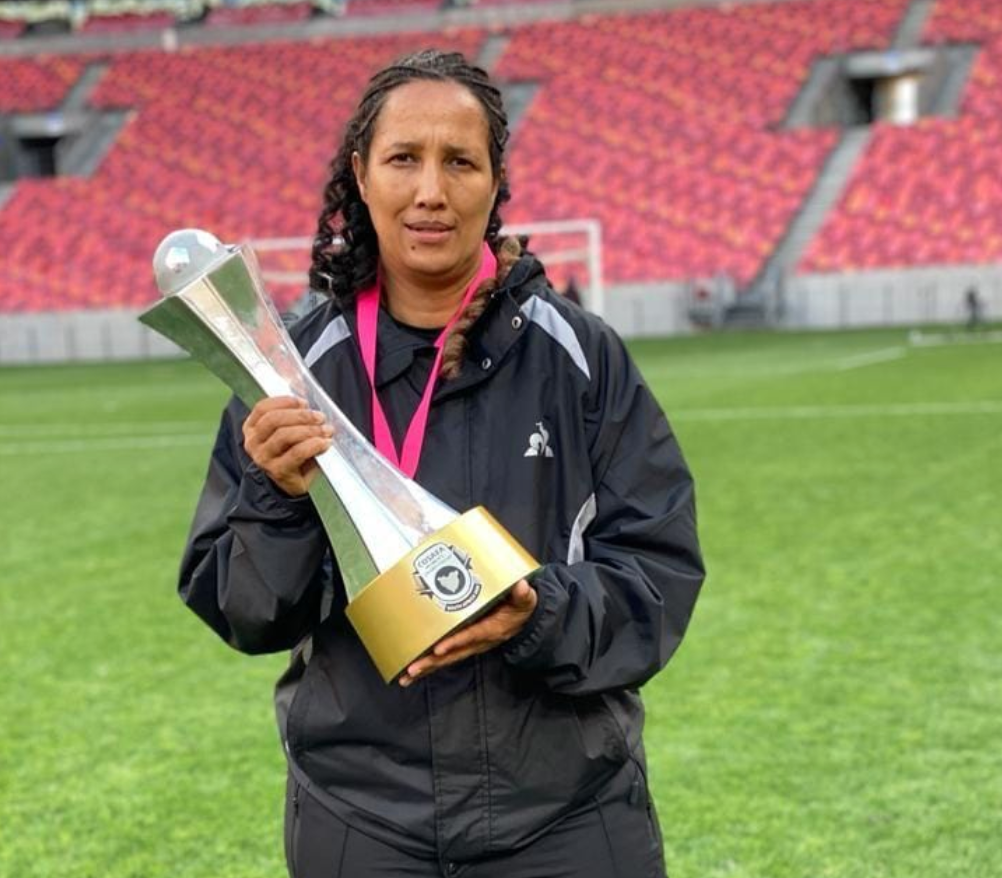
You are obviously a football person through and through – where to next for you? Any club or country to coach?
Football is in my blood — it’s not just what I do, it’s who I am. After the experiences I’ve had, especially in countries as diverse as South Africa, USA, South Sudan and Egypt, I feel more prepared than ever to take on new challenges. I’m open to opportunities that align with my values: building strong, resilient teams, contributing to meaningful development in the women’s game, and working in environments where I can make a real impact — whether that’s at club or national level.
I have had a few offers from both clubs and countries. I’m not chasing a name — I’m chasing a project that matters. Somewhere I can continue to help grow the game, elevate players, and bring out the best in those around me. However, my priority now is to go home for a bit and reset mentally and emotionally. In the meantime I will join FIFA in the coach development arena and that gives me another platform to raise the level in Africa for all women.
By Matlhomola Morake
